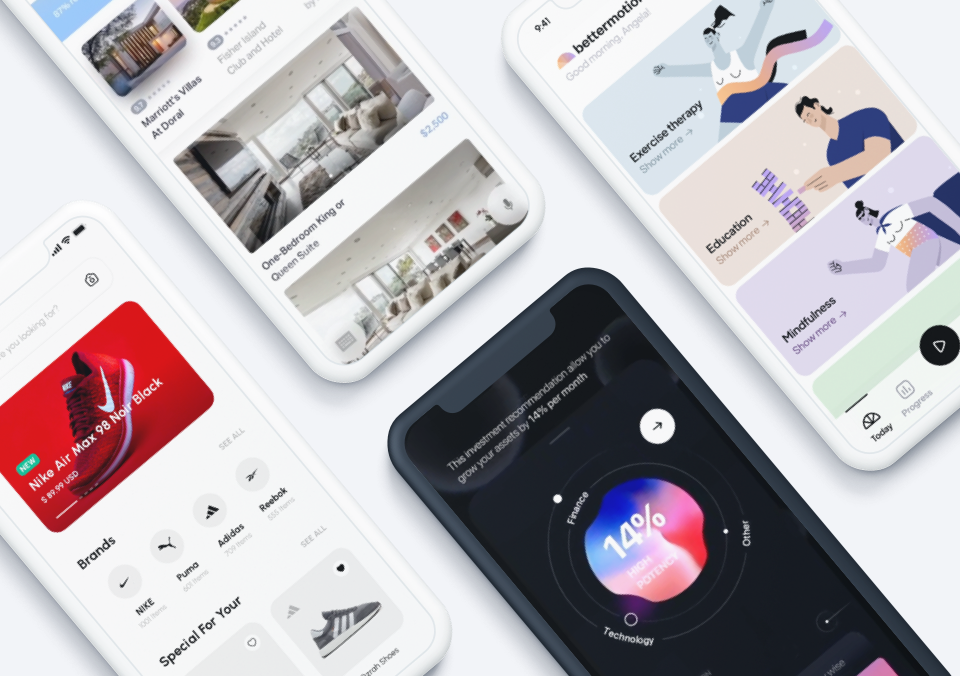Whether you’ve just received a job offer or are trying to increase your earnings after several years on the job, all designers could use a little guidance when trying to negotiate their salary. Some companies are tricky and never mention a salary range, keeping the entire process shrouded in mystery until an offer letter arrives. This is best avoided by asking the recruiter about what amount is budgeted for the position (which we’ll discuss further below).
While below we talk about how you can negotiate your design salary, these tips can also work across other types of positions. Let’s get started so that you can get on your way to the best possible salary.
1. Know Your Worth
Following this strategy to negotiate your design salary requires you to know your worth. By this, we mean do your research: how much should someone with your experience and in your location be making? You can go about gathering this information in a number of ways. First, it’s always good to start with an online search. Sites like Glassdoor, Salary.com, or PayScale enable you to look up salary ranges for the job title you’re considering, based on your location, experience, and more.
Next, are you switching to a new position within your company, or do you have friends in similar positions? Be sure to ask friends and colleagues either what a fair salary is or what they make. This will establish a baseline to make sure you ask for a wage that makes sense for your level of experience based on the market rate for the position.
2. Be Willing to Walk Away
This is especially true for designers who have just gotten a job offer from a new company. Some salaries are not worth it; they may be a significant pay cut based on your previous experience or offer benefits that don’t measure up. Robert Gate, Founder and Chief Editor of Archery Topic, offers his suggestion, “The key here is not only knowing when to walk away but having the courage to say no as well. Before engaging yourself in the negotiation process, you need to set a limit at what price you’ll walk away. Once you’ve set this, a clear line is then drawn, and it will serve as your marker not to cross.”
We cannot stress this enough: if the salary and opportunity don’t meet your needs, do not waste your time. There are other positions you can apply for that will be a better fit.
It’s important to note, however, that there are some opportunities that are worth lower pay. Getting a position at a small startup that enables you to learn very valuable skills very quickly can be worth it in the long run. You might be able to spend a year learning at hyper speed, then take those skills to a better-paying company and be able to enter at a higher position. Or, that same startup might have an IPO six years later. As an early employee, that payout would be very worth your effort. It is all about making a decision that works for you and your financial situation.
For junior designers starting at a new company, your first salary will carry a lot of weight. Throughout your tenure, your raises will be based on this starting salary. If you accept a lower salary than you deserve, then you could be leaving tons of money on the table for your time with that company.
For example, if you get a 4% raise each year and stay in your position for 3 years, someone with a starting salary of $50,000 would have an ending salary of $54,080. A designer who negotiated their starting salary to $55,000 would have an ending salary of $59,488. This difference compounds annually over the course of your career, so carefully negotiate your starting salary to get what you deserve during the many decades you will work.
3. Always Ask What Salary is Budgeted
Salary negotiation is often a game of cat and mouse. The recruiter may not want to offer up the salary range, but it is your job to be proactive and get the information out of them. In your first phone screen or initial call with a company, when asked about salary requirements, you should ask, “what is budgeted for the position?” This will let you know the range they are willing to offer and can be a starting point for negotiation.
If the interviewer doesn’t mention salary, you can ask this question at the end of the interview. Gently push for them to give you an honest answer. If they won’t, that may be a red flag. Alternatively, you can offer up a salary that fits with the research you’ve done and ask if that matches with their budget. Be sure to get a firm “yes” or “no” to this question to ensure you are continuing on in the hiring process with the company that will meet your needs.
4. Get the Timing Right
Has your company just gone through a round of layoffs or lost a major client? This may not be the best time to ask for a raise. When you are able to align the case for your skills and value alongside business realities, you will have a much easier time negotiating your salary. If you ask for a raise based on your excellent results and the company is not able financially at the moment, be sure to ask when you can check back in. A timeline that is too far in the future might indicate that you need to look for a new job that will compensate you better.
5. Provide Evidence
If you are angling for a raise at work, you’ll need to prove why you deserve one. As you complete projects and see the fruits of your labor, keep track of it all. When possible, get numbers to back you up. Did you redesign a landing page that led to a 10% increase in signups? Your boss will want to remember this when considering your request.
Beyond your personal highlights, what is going on in the industry? If you have been in your position for a few years, industry standards and average salaries may have changed. In a highly specialized role or a tiny company, your company may not have hired anyone in your exact role since you were brought on. This might create blind spots for companies. They might not be as tuned into what someone should be making in that role. So be sure to make them aware of the average salary for the position currently.
6. Get it in Writing
If you want to negotiate your design salary, you’ll need to get everything documented. An informal chat with your manager over coffee is not the same as an offer letter from Human Resources or a direct deposit slip showing your higher salary. Formalize your discussion with your manager by emailing them with your request to talk about salary. If you can, email them the documentation ahead of time to review it in depth before you meet.
7. Understand that Salary Negotiation Happens in Stages
When trying to secure a new job, your first salary negotiation happens when you name your suggested salary range. If you lowball yourself, your final salary may be much less than you would get otherwise. A company may offer you the middle of the range you state, then when the offer letter is in hand, your request will be to get the salary a bit higher to the upper range. You might cite your years of experience, comparable average salaries, specialized education (or maybe a coding bootcamp), or project highlights to encourage them to increase your base salary. But the most important thing to remember is that the first time you state a salary you would be willing to accept, this is where many companies will start your offer (if it is reasonable and fits with their budget). So proceed with caution to ensure you don’t get to the end of the interview process with a number that doesn’t meet your needs.
8. Consider More Than Money
Equity, fitness subsidies, 401(k) match, bonus, extra vacation days; these are just some of the many non-salary forms of compensation that can sweeten a deal. Especially if a potential employer, unfortunately, denies a request for a higher salary, these are some of the ways that employers can make their employment package more competitive. Don’t count them out when you negotiate your design salary.
Have can’t-fail tills to negotiate your design salary? Let us know by tweeting us @Protoio.
Proto.io helps you bring your idea to life in no time, with no coding skills required. It’s ideal for UX designers, entrepreneurs, product managers, marketers, students, and anyone with a great idea. Sign up for a free 15-day trial to start building your first prototype today!









